I've never seen a chart like this before. I'm just trying to figure out what the accuracy of this LCR meter (BK891) is between the 10-100 µF region. Why does it look like it's putting capacitance vs frequency? I just need to measure a capacitor, where does frequency take part? Thanks :)
Asked
Active
Viewed 94 times
1 Answers
0
The accuracy of 10 to 100 uF is between 0.2% and 2%, depending what freqency you are doing the measurement. The lower frequency you use the better accuracy you get.
Justme
- 127,425
- 3
- 97
- 261
-
What is the measurement frequency?? How fast it polls for new results or something entirely different? – AJ_Smoothie Oct 19 '22 at 15:53
-
1It does not measure capacitor impedance at DC but with some AC sine wave at some frequency. You tell the meter at what AC sinewave frequency you want to measure the capacitor. – Justme Oct 19 '22 at 16:07
-
Based on the accuracy being aligned with |Z| I would guess the meter measures |Z| and then calculates the capacitance/inductance based on |Z| – user253751 Oct 19 '22 at 16:40
-
Interesting. For a benchtop it doesn't seem very accurate >10uF. So BK's handheld version (830c) doesn't use an AC wave to measure, (constant current) and it has 0.5% from 1nF to 1000uF. If I'm going to be measuring a majority of my capacitors >50uF, why wouldn't I just buy the cheaper one at 1/4 the cost for the same accuracy? – AJ_Smoothie Oct 19 '22 at 16:47
-
1The meters are for completely different purposes. The benchtop meter is an LCR meter, handheld is for capacitance only, it can't even measure ESR to detect damaged capacitors. The handheld meter may look more accurate but desktop meter can be used to determine if the capacitor is OK at the frequency you need it to be OK. Desktop meter can also provide 0.5% or better for 1nF to 1000uF range. – Justme Oct 19 '22 at 17:08
-
Thanks for highlighting the differences! I'm realizing that my use case doesn't involve the capacitors being used in AC circuitry. I supposed when design a filter it would be extremely handy test at different frequencies. Cheers – AJ_Smoothie Oct 19 '22 at 19:00
-
If you don't intend to use capacitors for AC currents, what then? A capacitor does nothing in a DC circuit. You want to use capacitors because AC would cause voltage fluctuations, which is why you need to be sure your capacitor works at say 120 Hz or 100 kHz and will it do it's job at the needed frequency. – Justme Oct 19 '22 at 19:05
